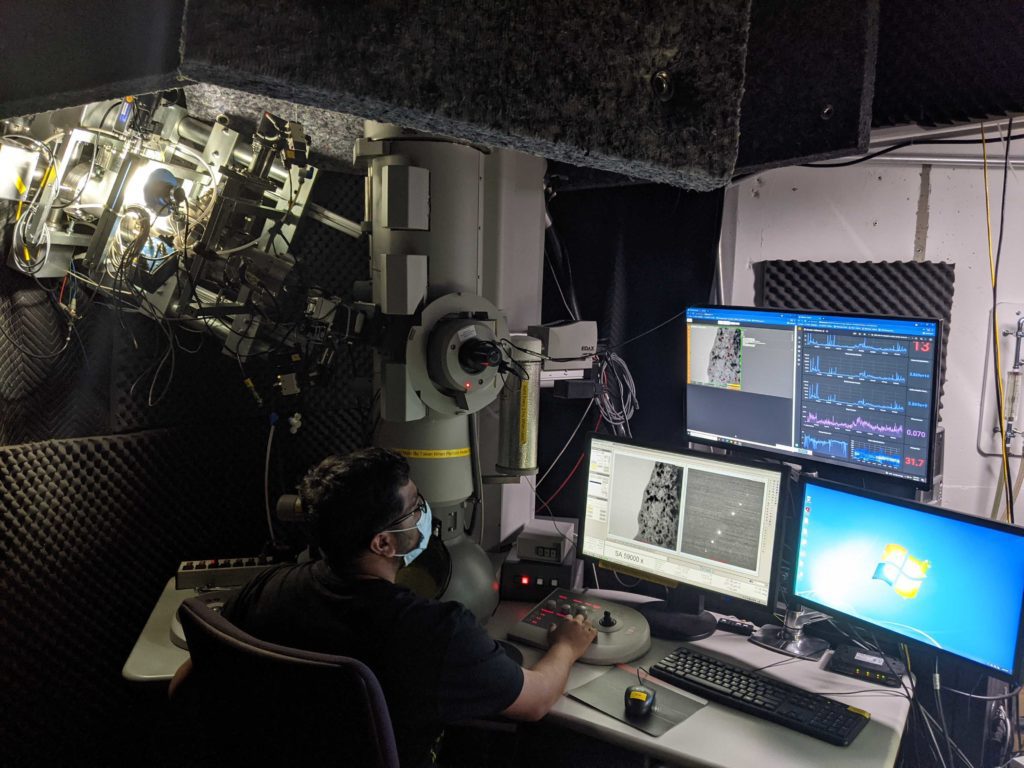
Update: Augmented reality engineering startup lands $1.1M SBIR grant
University of Michigan to explore inventive uses for the technology, including material science, biology and medicine

University of Michigan to explore inventive uses for the technology, including material science, biology and medicine
With $1.1M in funding from Phase 2 of the Small Business Innovation Research (SBIR) program, the University of Michigan startup Theia Scientific is poised to make the leap from startup to self-sustaining. The company also made its first sale earlier this month.
Born out of a need in nuclear engineering to observe how materials hold up to mechanical stresses, radiation and corrosion, it uses artificial intelligence to identify flaws in materials as they occur in real-time during tests that emulate how the material will age. These flaws are annotated and quantified on the video feed in real time. The team has also completed initial trials and have shown it can be applied to other fields such as medical imaging, enabling the identification and tracking of relevant features in each frame.

$330,000 will go to the University of Michigan to explore inventive uses for the technology, including material science, biology and medicine. The remaining funds will go to Theia Scientific to advance the hardware and software architectures. This effort will increase the portability of the computational devices; provide a robust, easy-to-use web-based interface for users; and enable over-the-air updates to keep the technology at the cutting edge of artificial intelligence and microscopy.
Read more about the technology in “Augmented reality for testing nuclear components” from Michigan Engineering, September 23, 2021.